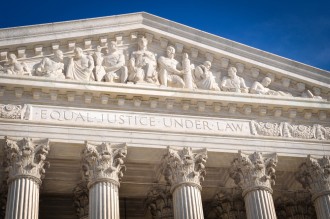May 20, 2019
Trademark Licensees Keep Their Rights When Their Bankrupt Licensors Reject the Licenses
In Mission Product Holdings, Inc. v. Tempnology, LLC, the Supreme Court held that when a bankrupt trademark licensor rejects the trademark license agreement license (as it is entitled to do under the bankruptcy law) it does not automatically terminate the licensee’s right to use the licensed mark. Under bankruptcy law, the rejection of the license agreement constitutes a breach of the agreement, but, the Supreme Court reasoned, the licensor’s breach does not necessarily terminate the licensee’s continued right to use the mark.
The bankruptcy law (Section 365(n)) protects the licensees of intellectual property from the effects of the rejection of their licenses. However, the bankruptcy statutes defines intellectual property as a (A) trade secret; (B) invention, process, design, or plant protected under title 35; (C) patent application; (D) plant variety; (E) work of authorship protected under title 17; or (F) mask work protected under chapter 9 of title 17. The omission of trademarks from this list led many, apparently including Tempnology, to believe that trademark licensees were not similarly protected.
The Supreme Court disagreed, saying that, read as generously as possible to Tempnology, this mash-up of legislative interventions in 365(n) does not say much of anything about the content of Section 365(g)’s general rule. The Supreme Court said that read less generously, it affirmatively refutes Tempnology’s position — the Court pointing out Congress enacted 365(n), as and when needed, to reinforce or clarify the general rule that contractual rights survive rejection. The Supreme Court concluded that Congress did nothing in adding Section 365(n) to alter the natural reading of Section 365(g)—that rejection and breach have the same results.
Tempnology argued for a special rule for trademarks, claiming that without the right to terminate the license, a bankrupt licensor risks losing the trademark because it cannot afford to exercise the quality control necessary to maintain the trademark. The Supreme Court found that Tempnology’s plea to facilitate trademark licensors’ reorganizations cannot overcome what Sections 365(a) and (g) direct. The Court noted that while the bankruptcy code aims to make reorganizations possible, it does not permit anything and everything that might advance that goal.
The Supreme Court concluded that while a bankrupt licensor has the right to reject the license agreement, this does not terminate the license, it merely terminates the licensor’s obligations under the agreement (which constitutes a breach of the agreement). If such a breach does not effect a termination of the agreement, then the licensee’s right to use the licensed mark continues.



































